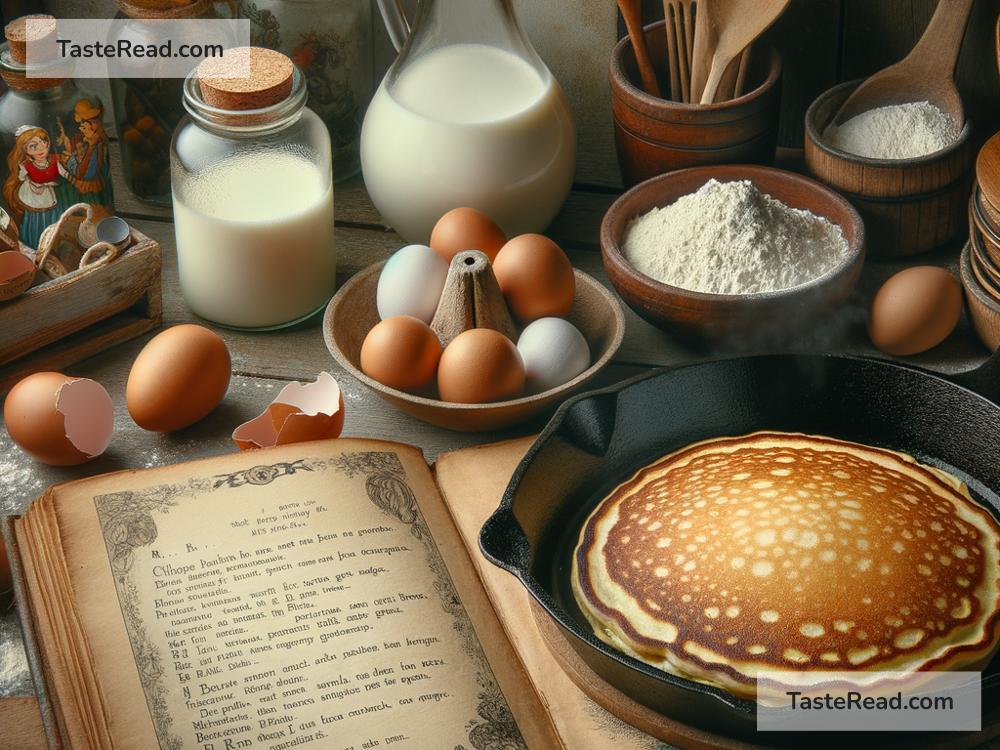The Origins of the First Pancake in Folklore
Pancakes are one of the world’s most loved foods. Whether you enjoy them for breakfast, dessert, or even dinner, pancakes are versatile. They can be sweet or savory, fluffy or thin, simple or fancy. But have you ever wondered where pancakes come from? And how did people start eating them? To answer these questions, let’s take a look at the fascinating folklore behind the origins of the first pancake.
What is a Pancake?
Before diving into folklore, let’s define what a pancake is. Simply put, it’s a flat cake made by frying or cooking batter on a griddle or skillet. Pancakes are made of basic ingredients—usually flour, eggs, milk, sugar, and sometimes a bit of baking powder to make them fluffier. Different cultures around the world have their unique styles of pancakes, but the idea of cooking a flat bread or batter goes back thousands of years.
The Folklore of the First Pancake
In many cultures, the first pancake is linked to myths, legends, and traditions. These stories often weave together religion, superstition, and simple human curiosity about food. Let’s explore some of the popular tales connected with the origins of pancakes.
Pancakes and Ancient Offerings
One of the oldest beliefs about pancakes ties them to religious rituals and offerings. In ancient times, people would cook flat cakes as a symbolic offering to gods or spirits. Some folklore suggests that the first pancake was made as an offering to the sun. Its round shape resembled the sun, and people believed cooking and eating a pancake would bring prosperity, a good harvest, or warmth.
Even today, this tradition survives in small ways. For example, in Slavic countries, the celebration of “Maslenitsa,” also known as Pancake Week, is a nod to these ancient solar rituals. People prepare and eat pancakes to say goodbye to winter and welcome the warmth of spring.
The “First Pancake is for the Poor” Idea
There’s a saying in old European folklore: “The first pancake is for the poor.” According to tradition, people would cook a batch of pancakes, but the very first one wasn’t eaten by the cook or their family. Instead, it was given away to beggars or hungry travelers. This was seen as a moral duty and a way to share blessings.
The idea also came from practical reasons. In the past, stoves weren’t as reliable as they are today. The first pancake was often poorly cooked because the pan wasn’t hot enough, the batter hadn’t settled, or the cook was still adjusting their technique. Rather than letting it go to waste, families turned this imperfect pancake into an act of generosity.
The “First Pancake is Always Messy” Saying
You might have heard the phrase, “The first pancake is always messy” or something similar. This comes from Eastern European folklore and is used to comfort people when they don’t get things right the first time they try. It’s based on the idea that the first pancake often doesn’t turn out perfect—it might stick to the pan, tear, or be oddly shaped.
People took this saying beyond cooking and used it for learning new skills. Whether you’re trying to paint, play an instrument, or start a new job, the first attempt might be awkward or messy, but the next ones usually improve. The first pancake teaches us patience and that mistakes are part of learning.
Pancakes and Shrove Tuesday
One of the most famous pancake-related traditions comes from Christianity. Pancakes are a big part of celebrating “Shrove Tuesday,” also known as Pancake Day in Britain and other parts of the world.
Shrove Tuesday comes just before Lent, which is a 40-day period of fasting and spiritual preparation leading up to Easter. In old times, people avoided rich foods like butter, milk, and eggs during Lent. To use up these ingredients before the fasting began, families would make pancakes.
The tradition became so popular that people started to associate Shrove Tuesday with pancakes. Villages would hold pancake races, cook-offs, and contests, making it a joyous event. Some folklore suggests these races and games symbolized chasing away evil spirits or bad luck before Lent started.
Pancakes as a Symbol of Wholeness
In some cultures, the round shape of pancakes represents wholeness, unity, and balance. Ancient folklore tells stories of people cooking pancakes to celebrate life’s cycles—birth, adolescence, adulthood, and old age. Pancakes were often seen as a food capable of holding spiritual meaning because their shape mimicked the sun, moon, or the circle of life.
Some legends even claim that the first pancake was created as a magical food. According to the story, a wise woman mixed flour, water, and honey, cooked it on a flat rock under the sun, and shared it to bring people together.
Conclusion
The origins of the first pancake in folklore are diverse and intriguing. Whether it was an offering to gods, a lesson in generosity, or a way to celebrate life, pancakes have always carried deeper meanings in human culture.
These stories show us that food is never just about eating—it’s about connection, history, and tradition. So the next time you flip a pancake, think about how this humble treat has traveled through centuries, bringing joy to people around the world. And remember, if your first pancake doesn’t turn out perfect, that’s okay—it’s all part of the magic!


